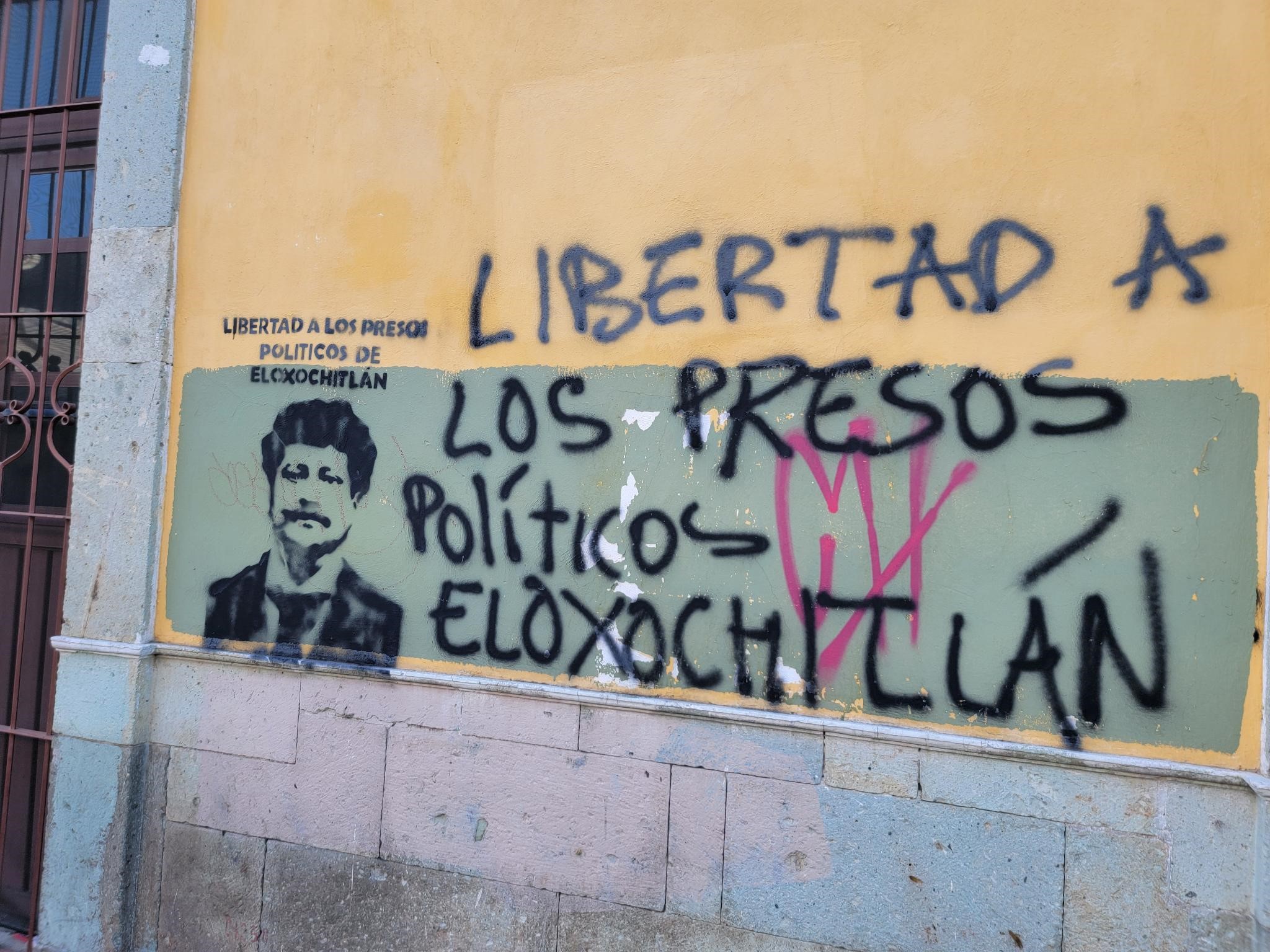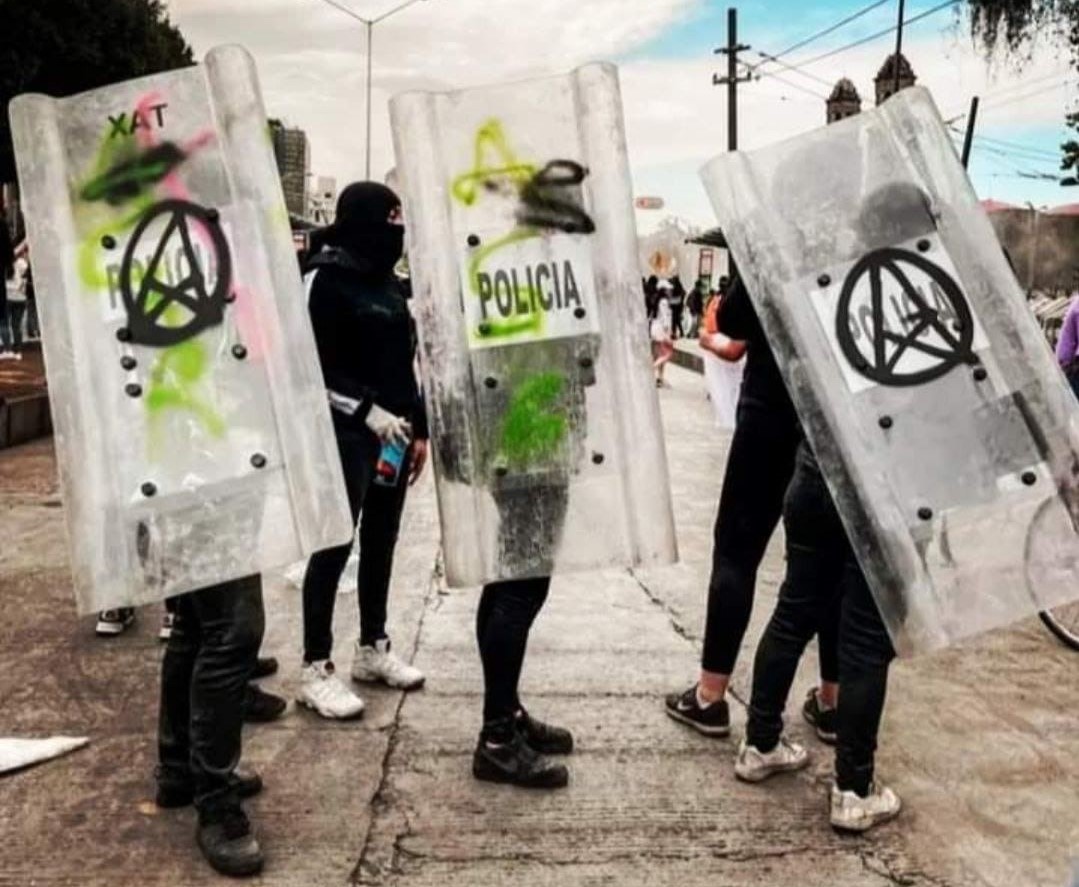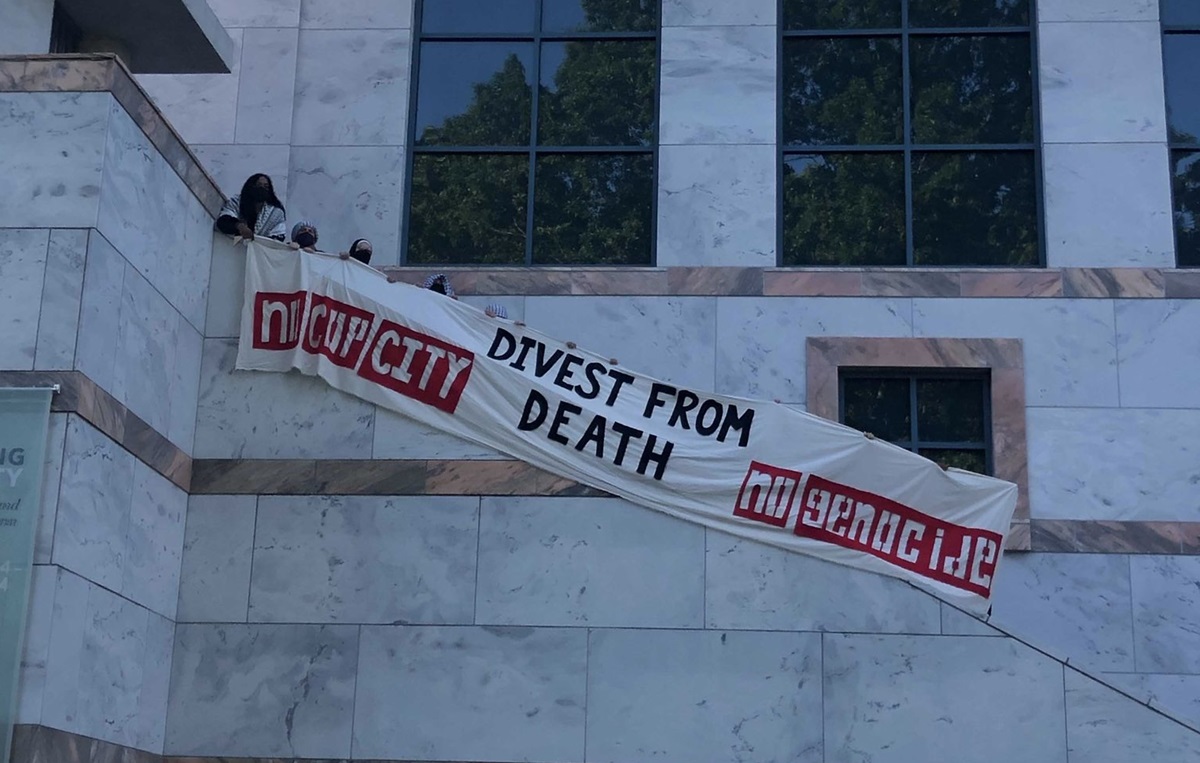Filed under: Announcement, Indigenous, Mexico, Political Prisoners, Southern Mexico

The following article by Gloria Muñoz Ramírez, published in Desinformémonos and translated by Scott Campbell, notes the launching of a hunger strike by seven Indigenous political prisoners from Eloxochitlán de Flores Magón.
Eloxochitlán de Flores Magón | Desinformémonos. The demand for the freedom of the seven Mazateco political prisoners was the focus of the international event organized to mark the 100th anniversary of the death in prison of Ricardo Flores Magón, an anarchist precursor of the Mexican Revolution who questioned power until his death, which occurred on November 21, 1922 in a U.S. prison. The revolutionary was born in Eloxochitlán, Oaxaca, and here, after a series of commemorative acts organized by the community, it was announced that the prisoners – held in three different prisons – will remain on hunger strike until governor-elect Salomón Jara Cruz opens a dialogue with their relatives to facilitate their release.
In a letter sent from the prisons of Villa de Etla, Taniveth, and Cuicatlán, Oaxaca, Jaime Betanzos, Fernando Gavito, Alfredo Bolaños, Omar Hugo Morales, Herminio Monfil, Isaías Gallardo and Francisco Durán recalled that the federal government recognized them as political prisoners in December 2018. At that time, they noted, “it was recognized that we are Indigenous people whose rights have been violated and that crimes were fabricated against us.”
♦️CARTA a @salomon
-Gobernador Electo de Oaxaca.
7 indígenas presos de Eloxochitlán de Flores Magón Oaxaca, en #HuelgaDeHambre, solicitan mesa de trabajo- impulsar liberación.@lopezobrador_ @adan_augusto @A_Encinas_R @alejandromurat @OnyMex @CNDHrd @ pic.twitter.com/Vx7pAJ4KUj— Elox_floresmagon (@EloxMagon) November 22, 2022
In this town in the Sierra Mazateca, the activities in homage to Flores Magón began on November 19 and culminated today, November 21, with a march and political act in front of the municipal offices. In attendance were entire families from this divided and wounded community, as well as people from social organizations and punk and anarchist collectives from different states. At the same time, at the National Palace in Mexico City, the president led an official ceremony in tribute to Flores Magón, the permanent rebel. “They are sullying his history and his name,” said a young Mazateco painter and musician, outraged by the official tribute that is “the opposite of Flores Magón’s thought.”
The struggle between political party politics versus the community assembly based on traditions and customs is at the heart of the detention of the seven prisoners. They are accused of murder and attempted murder, but their relatives and defenders have documented the interference of various public officials who fabricated statements and their guilt.
“We’ve been forced to prove our innocence in spite of the fact that there have been 20 release orders [of other prisoners from Eloxochitlán] and two court victories that establish that the state could not prove that we are guilty… Our legal process has been torturous,” they remarked in a letter read by Argelia Betanzos Zepeda, daughter of Jaime Betanzos, and the person designated by the prisoners to receive communication with the new governor, with whom they insist on a dialogue regarding each case and about the prevailing situation in the community.
The march or procession was led by the families of the prisoners and of the 15 displaced people (who have arrest warrants against them and have to live in hiding), followed by a symbolic coffin with a paper mache Flores Magón, carried on the shoulders of the close relatives of those arrested in December 2014. Behind them walked the rest of the community, and at the end, members of social organizations and collectives, as well as the relatives of other political prisoners held in various prisons throughout the country, such as Chiapas and the State of Mexico; and victims of other state crimes, such as Cristina Bautista, mother of one of the 43 disappeared students from Ayotzinapa. “Freedom, freedom, to those imprisoned for struggling,” was the permanent slogan during the orderly walk along the main avenue, in this tribute to the one who “lived and died for freedom.”
In the morning, the event began with an Offering of Invocation for Freedom, right at the Flores Magón rotunda at the entrance to the town. The mountains dawned covered in a thick fog, but the rain stopped so that the activities could continue.
“Do you know who Ricardo Flores Magón was?” Filiberto, a nine-year-old boy who marches with his family is asked. “Someone who was born here and liked nature,” he answers. His friend comes closer and elaborates: “He was a college graduate who was with the poor and fought against the rich.” Paulina, 11 years old, says she doesn’t know anything, just that at school they told her there would be a parade, and that’s why she came in her uniform, but at the last minute they cancelled it. The municipal, state, and federal governments couldn’t have the main square. A modest floral ofrenda from the municipality and another from MORENA Oaxaca were the only vestiges of an institutional presence.




